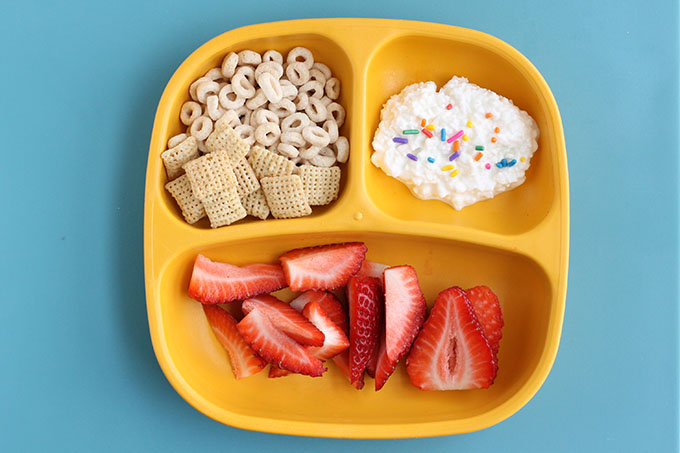Dry Mouth Syndrome happens when there is not enough saliva produced by the salivary glands in the mouth to keep the mouth moist and bacteria free. It is also called xerostomia. Xerostomia can make it difficult to speak, eat, digest food and can lead to malnutrition. Extreme dry mouth and salivary gland dysfunction can produce significant anxiety, mouth and throat disorders. It is common in children and the elderly. It is usually temporary, with cases lasting only a week or so, but is rarely severe.
In this article:
What are its Symptoms?
What Causes it?
How do I Treat it?
Is it Possible to Prevent Dry Mouth Syndrome?
All You Need to Know about Dry Mouth in Children
What are its Symptoms?
There are several symptoms that could be indicative of an underlying issue, such as:
- Dry feeling in the mouth
- Dry feeling in the throat, or a sore throat
- Frequent thirst/feeling dehydrated
- Difficulty speaking, chewing, and swallowing (called dysphagia)
- Increased need to drink liquids in order to swallow
- Diminished or altered sense of taste
- Chapped or cracked lips
- Voice sounds hoarse
- Dry eyes
- Pale gums
- Headaches, dizziness
- Bad breath
- Persistent coughing
- Dry nasal passages
- Dry corners of the mouth
- Nausea
- Mouth sores or ulcers
- Discoloured tongue, indicative of a fungal infection like yeast (candidiasis)
- A burning, sore or tingling sensation in mouth, tongue, or throat
- Red and bleeding gums, gingivitis, and periodontitis
- Tooth decay — especially around the gum line or on the root surfaces
Read More:7 Reasons why you Might have a Dry Mouth During Pregnancy
What Causes it?
There are many causes of dry mouth. Dry mouth most commonly occurs as a side effect of taking oral medications. Other causes of dry mouth include dehydration, radiation treatments to treat cancerous tumors of the head and neck, salivary gland diseases, removal of salivary glands, diabetes, smoking, hormonal imbalances, mouth breathing, sleep apnea, cystic fibrosis, mumps, hypothyroidism, and autoimmune disorders such as rheumatoid arthritis and HIV/AIDS.
Eating disorders, such as bulimia and anorexia, are other risk factors for developing xerostomia. Salivary production can be decreased if a major salivary duct becomes blocked, such as from a salivary stone or infection. Other risk factors include stress, anxiety, and depression.
How do I Treat it?
Whether it’s a short or long-term situation, home remedy treatments are available to alleviate the symptoms of dry mouth in your kids. By effectively treating these symptoms, you can better manage the condition by doing the following:
Keep Your Child Properly Hydrated
This is the most basic of dry mouth remedies, but also one of the most effective ever. The more hydrated you are, the easier it is to create saliva. Drinking water moistens the mouth, easing discomfort and making it easier to eat, drink and talk. If your child has problems swallowing, a straw will make it easier for them to take in enough liquids.
Read More:Hand Foot and Mouth Disease in Children: Ultimate Guide
Avoid Sugary Drinks, Soda and Caffeine
Sugar and caffeine, which are found in sodas and many other foods and drinks in varying quantities, dry out your kid’s mouth further rather than moistening it. In addition to this, all sodas contain a high level of acid that should be avoided as it can damage your child’s already dry and vulnerable mouth.
Eating Bland and Luke-Warm Food Will Help
You should start preparing bland foods instead of spicy dishes since these are acidic and will hurt your child. Keeping food at room-temp and not piping hot will ease your child’s eating during this issue. Bland, non-acidic juices such as peach or apple will help your child.
Read More:Adenoids Removal in Kids: 11 Post Surgery Care Tips
Sugarless Gum
Sugarless or sugar-free gum is one of the best dry mouth remedies, as it encourages your child’s body to produce its own saliva. Pick a flavour they like.
Practice Good Oral Hygiene
Brushing, flossing and using mouthwash after each meal helps to stimulate the gums and teeth while removing harmful bacteria and debris. In addition to doing that, toothpaste and mouth rinse created for those suffering from dry mouth can help provide longer relief from the symptoms. Your doctor or dentist will recommend looking for SLS-free kinds of toothpaste.
Visit Your Dentist
One of the most effective ways to find the right dry mouth remedies is to talk to your pediatric dentist. Not only can they recommend treatment options to help relieve the symptoms of dry mouth, but they can also begin to help you understand why your child is experiencing this issue in the first place. If your kid’s dry mouth has been a persistent ailment, bring them to their dentist immediately.
Is it Possible to Prevent Dry Mouth Syndrome?
There is really no prevention of dry mouth, only the side effects of dry mouth. It is vital to detect, diagnose, and treat Dry Mouth Syndrome as early as possible to avoid the devastating consequences of chronic dry mouth on dental and overall health in your kids..
Sources
https://www.webmd.com/oral-health/guide/dental-health-dry-mouth#2
https://www.betterhealth.vic.gov.au/health/conditionsandtreatments/dry-mouth-syndrome












